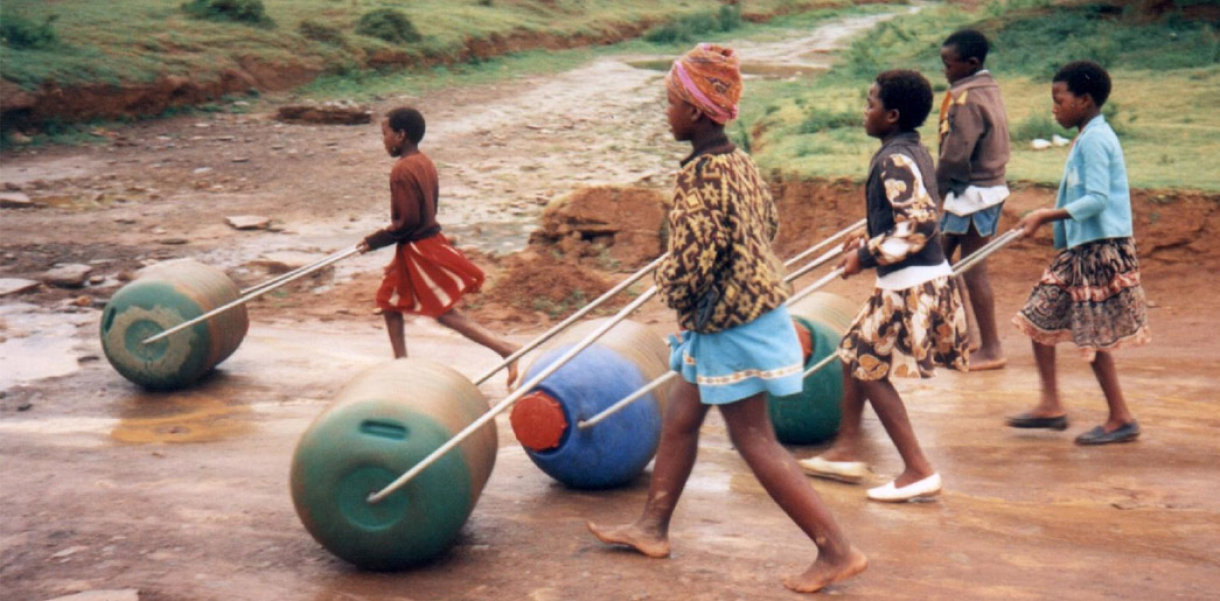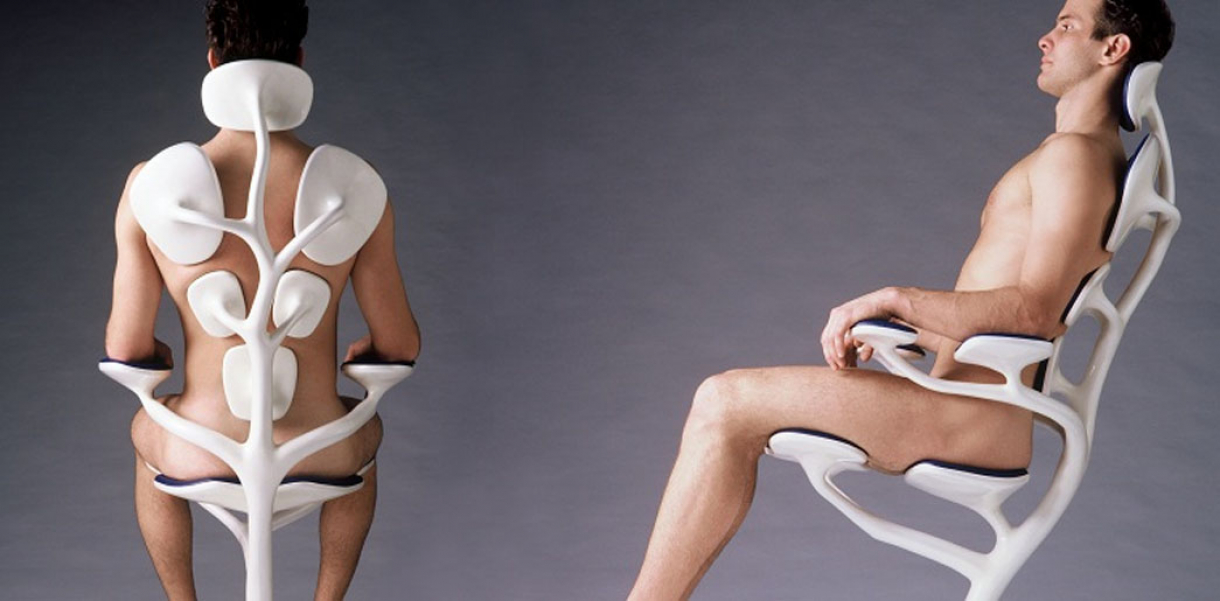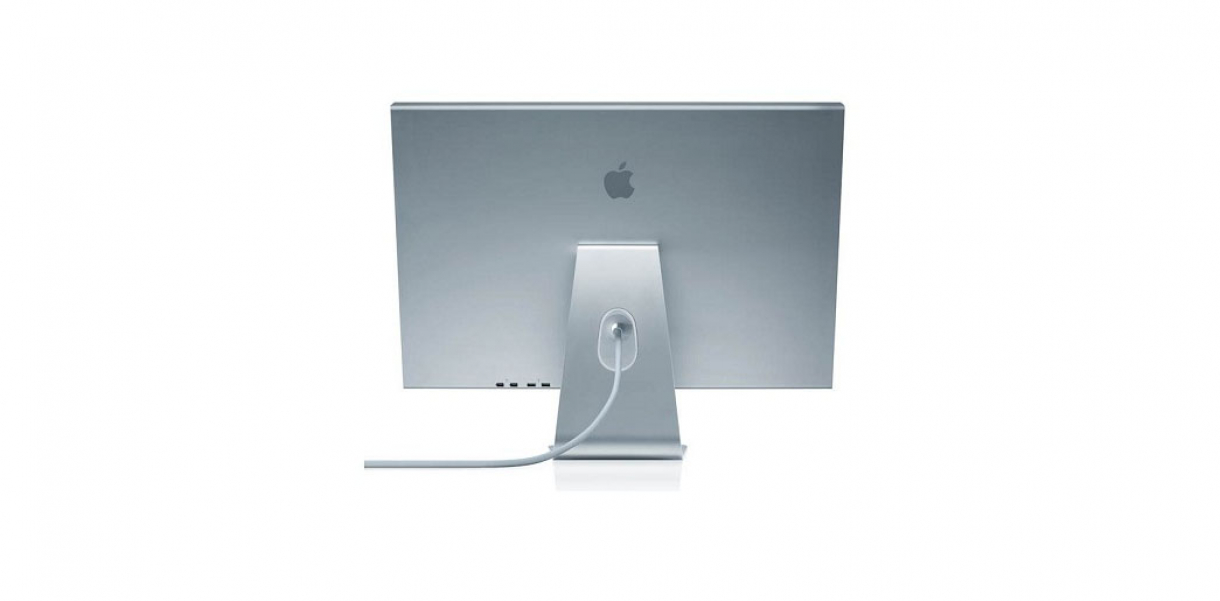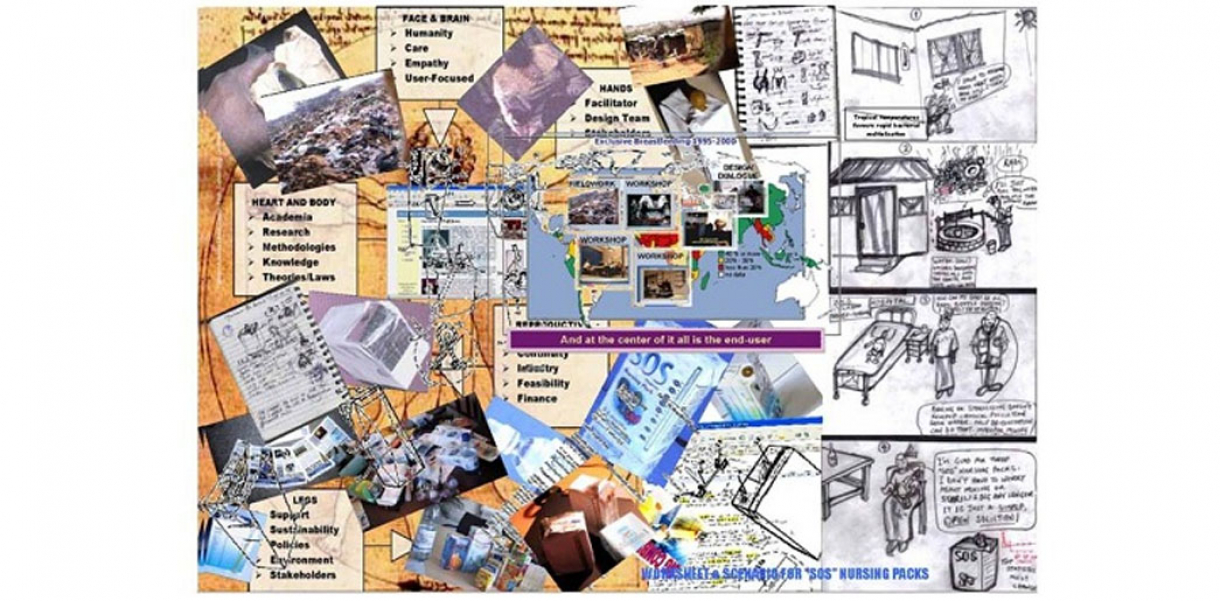Functionality and use of design
The innovative design allows water to be placed inside the "wheel" rather than carried above the wheel. The 90kg (200 pounds) weight of water is borne on the ground resulting in an effective weight of just 10kg (22 pounds) on level ground. Children and the elderly can easily manage a full roller over most types of terrain. Extensive field tests over many years and various awards have proven the effectiveness of the Hippo Water Roller. Approximately five times the normal amount of water can now be collected in less time with far less effort.
The drum is manufactured from UV stabilized Polyethylene and has been designed to withstand typical rural conditions such as uneven footpaths, rocks and even broken bottles. The large opening (135 mm /5.3-inch diameter) allows for easy filling and cleaning of the interior. The sealed lid ensures hygienic storage of water and the steel handle provides firm control over difficult terrain while pushing or pulling the roller.
How did this design improve life?
For as long as anyone here can remember, women and children from every Luphisi household have spent much of their day fetching water from a nearby stream. Balanced carefully on their heads for the sometimes mile-long walk back to the village, the water was carefully rationed back home. Without it, life could not go on.
These days, however, the sight of women balancing water buckets is rare in this isolated village nestled in South Africa's Malelane Mountains. Instead, villagers roll the water in their "hippos," a new invention that has made the heavy task of transporting water less onerous task. The large rolling water buckets – called "hippo rollers" do not provide a long-term solution to the developing world problem of access to clean water. But for thousands of women across South Africa who spend much of their day hauling the clear, cool liquid, it's a step in the right direction.
"The government is trying to do what they can to address the access-to-water problem, but it's a reality of life that there are going to be many, many communities that are going to battle with this problem for years to come," says Grant Gibbs, a founder of Imvubu ("hippo" in the local South African language of Zulu) Projects, which makes the rollers. "The hippo roller is designed as an intermediary solution."
Since the age of two, Betty Sgawuka has been carrying water. At first, she carried only a few litres in a tiny container as she rambled behind her mother or older siblings. By the time she was fully grown, she carried 30 litres six or seven times a day for nearly a mile from the stream to her home. "No one here has running water in the house," she says. "So we had to be very strict with the water because it was so hard to get and so heavy."
With her hippo roller, donated five months ago by the nearby Bongani Mountain Lodge, where many local villagers work, Mrs. Sgawuka can now transport 90 litres in one trip. The invention has allowed her to be far more generous with the water's use. "It's so much easier to push it than to carry it on your head," she says. "All of us are happy to get them."
Although South Africa has made great strides toward providing clean water to people in rural areas, more than 7 million people are still without access. Millions must still carry the water great distances from community taps.
At a cost of about $35 per roller, the hippos are out of reach for the rural South Africans who need them most. Imvubu has tried to convince corporations and nonprofits to sponsor the rollers. So far, about 10,000 have been distributed, mostly in Southern Africa.
The cost of taking them to the places where they are most needed can often be prohibitive. Two-thousand rollers sent to Angola, for example, cost nearly $30,000 to ship. In the meantime, Imvubu is developing portable hippo-roller plants that can be moved more cheaply than the finished product. Someday soon, they hope, the hippo roller will be a common feature in communities around the world, like Luphisi, where water is still a precious and hard-won commodity.
Drawbacks of life improvement
At a cost of about $35 per roller, the hippos are out of reach for the rural South Africans who need them most. Imvubu has tried to convince corporations and nonprofits to sponsor the rollers. So far, about 10,000 have been distributed, mostly in Southern Africa.
The cost of taking them to the places where they are most needed can often be prohibitive. Two-thousand rollers sent to Angola, for example, cost nearly $30,000 to ship. In the meantime, Imvubu is developing portable hippo-roller plants that can be moved more cheaply than the finished product. Someday soon, they hope, the hippo roller will be a common feature in communities around the world, like Luphisi, where water is still a precious and hard-won commodity
Research and need
None
Designed by
Pettie Penzer & Johan Jonker - South Africa






